Explore Fruit & Nut Tree Weekend ♡ Hop into Overstock Sale items
Lorz Italian Softneck Garlic
Rare and renowned, Lorz Italian is recognized by Slow Food in its Arc of Taste. Originally brought to the United States from Sicily in 1850 by the Lorz family, softnecks are not known for their cold-hardiness. The local “lore” of softneck types like Lorz was dismissive: “not worth growing softnecks up here” – yet our friends have grown Lorz in central Maine (Zone 4!) for 15 years. You’ll find 7 to 9 cloves with rich, buttery heat, in the outer ring of Lorz with numerous ‘shard’ cloves tightly packed at the center of the head, similar to all ‘artichoke’ softneck garlic types. For optimal winter survival and impressive bulb harvest, plant the large outer cloves and savor the inner ‘shard’ cloves.
Softnecks do not produce scapes and are among the most productive garlics to grow. They readily develop very large bulbs (average 4-5 bulbs per lb) in a wide range of growing conditions and soils, maturing before many other types. Their bulb wrappers are generally thick and coarse compared to other varieties and are generally white or white-purple. Artichoke cultivars have multiple clove layers (though not as many as Silverskins), the inner cloves generally being smaller than the outer cloves. Artichoke cultivars are typically mild with modest flavor complexity and lack the assertive heat of most garlics. As a group they are less adapted to cold, harsh winters but often adapt well after several seasons (which ours are). Also as a group they store exceptionally long (often a year or more), only exceeded in storage by the Silverskins.
Lorz is grown on our dear friend Heron’s farm in Maine where he’s been building soil as well as community for decades. Though his land is not technically certified organic, his practices are profoundly regenerative and are making possible the future we all dream of. Learn more here.
| Quantity | Price | Quantity# | Availability | |
|---|---|---|---|---|
| 3 Bulbs | $16.50 | Out of Stock |
Want to be notified when this product is back in stock? |
|
| 6 Bulbs | $28 | Out of Stock |
Want to be notified when this product is back in stock? |
How to Grow Organic Garlic: Just a Taste! Prepare: Choose well-drained soil that has plenty of sun. We reap what we sow — and also what we sow into — and garlic is hungry! To harvest the largest, healthiest and most delectable heads, sow your cloves into garden soil with abundant compost as well as our organic garlic & shallot fertilizer, nourishing root development in fall and growing large, nutrient dense plants all spring and early summer. We have recently begun to use a small handful of worm castings on top of each clove when we seed in the fall. The health and size of the garlic plants has dramatically improved- give it a try! Plant: Here in Zone 5 we plant between late September to early November. Plant individual cloves 2-3 inches deep and 6 inches apart in a row. Rows should be 6-10 inches apart depending on bed spacing and cultivation tools. Late planting? As long as you can get into the garden and the ground is not frozen the garlic will do just fine. We have planted digging through the snow when we got behind and had no other choice. You might not like being out there then, but the garlic does not seem to mind. Plant Care: If you have mulch available it will aid in reducing frost-heaving. Keep garlic well-watered and well-weeded! Foliar feed your garlic in spring with compost tea or organic fish emulsion for an invaluable boost in nutrients, as well. Harvest: Feel free to harvest the delicious, spiraling scape that will appear in early/mid-June on the hardneck varieties. Harvest your bulbs beginning the first or second week of July up until mid-August with a fork or shovel once a third of the leaves are brown and dry. Cure garlic (leaves and all) out of the direct sunlight for two weeks with plenty of good air flow, clipping the necks and roots to store long-term in a dark, dry place. Softnecks: when harvesting we like to cut the stem of the plant as close to the garlic bulb to encourage uniform drying. Learn more: Visit our free online course, Growing Garlic & Shallots Organically for more insight on how to amplify your garlic abundance. Enjoy!
Fruition’s Growing Guide
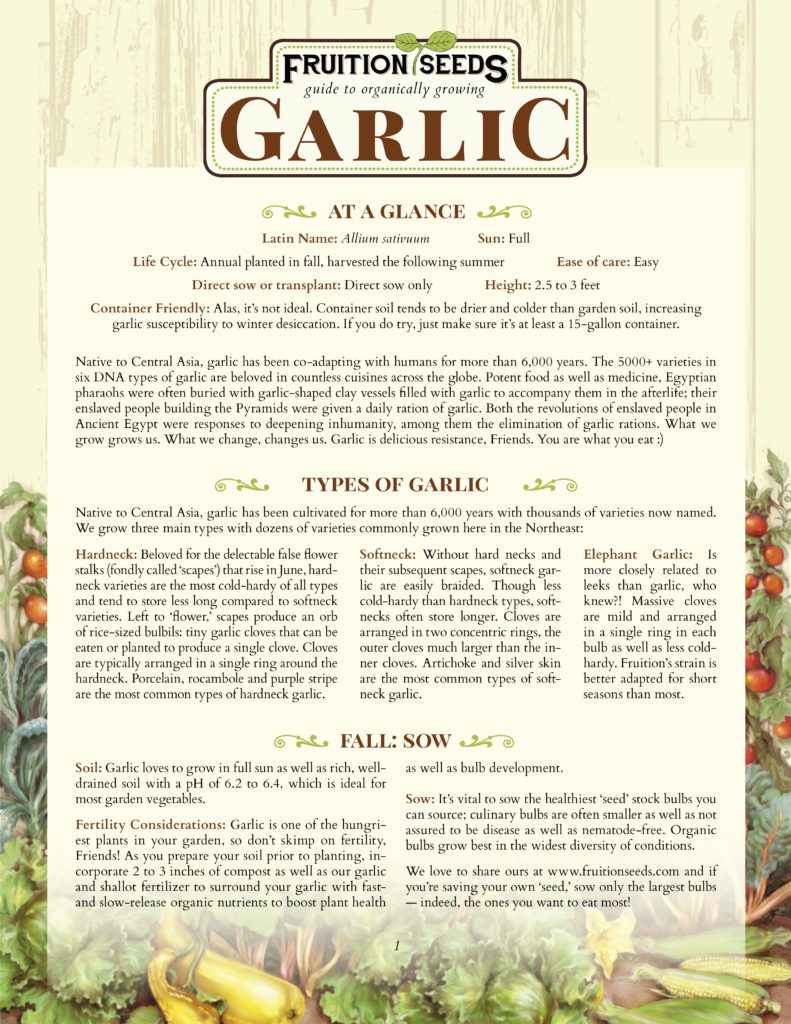
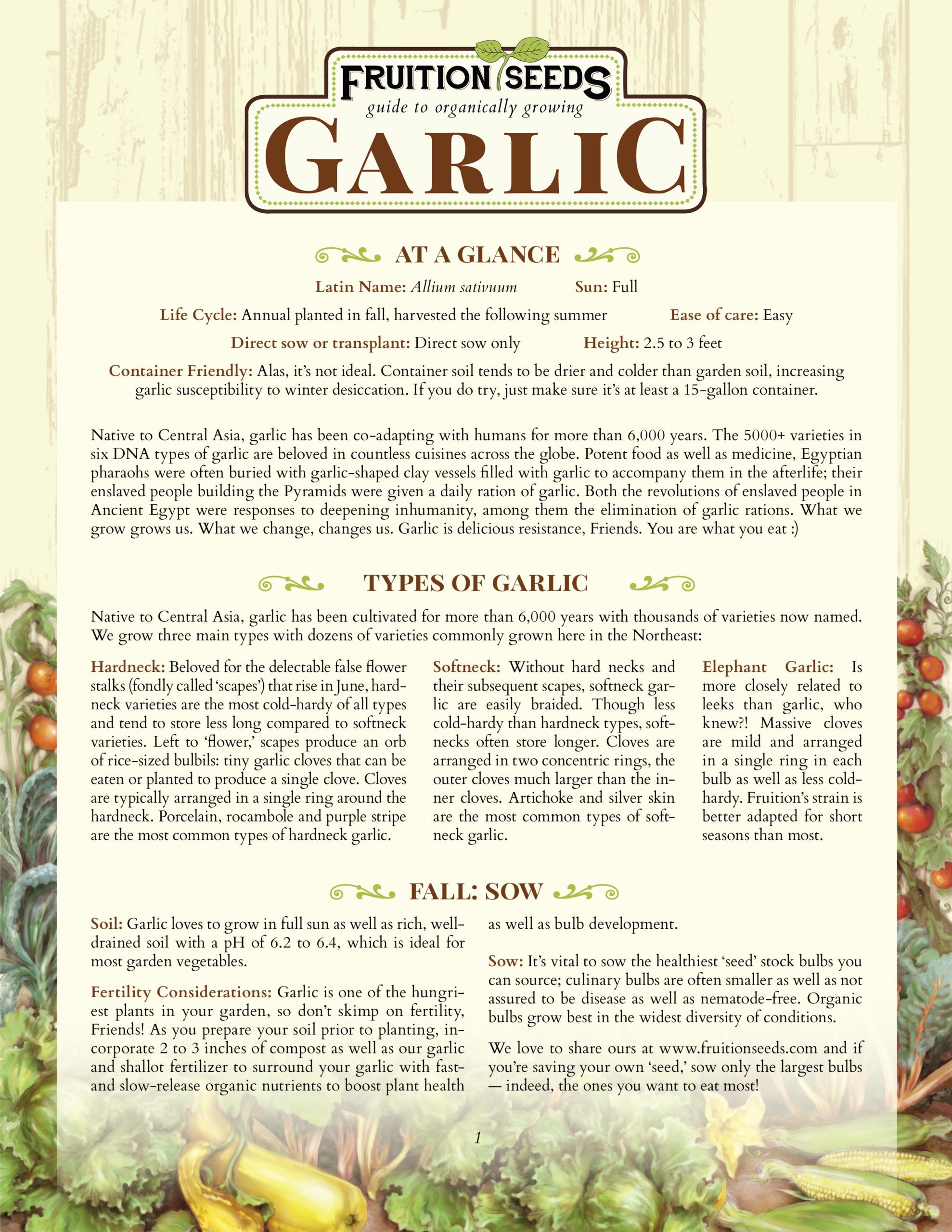
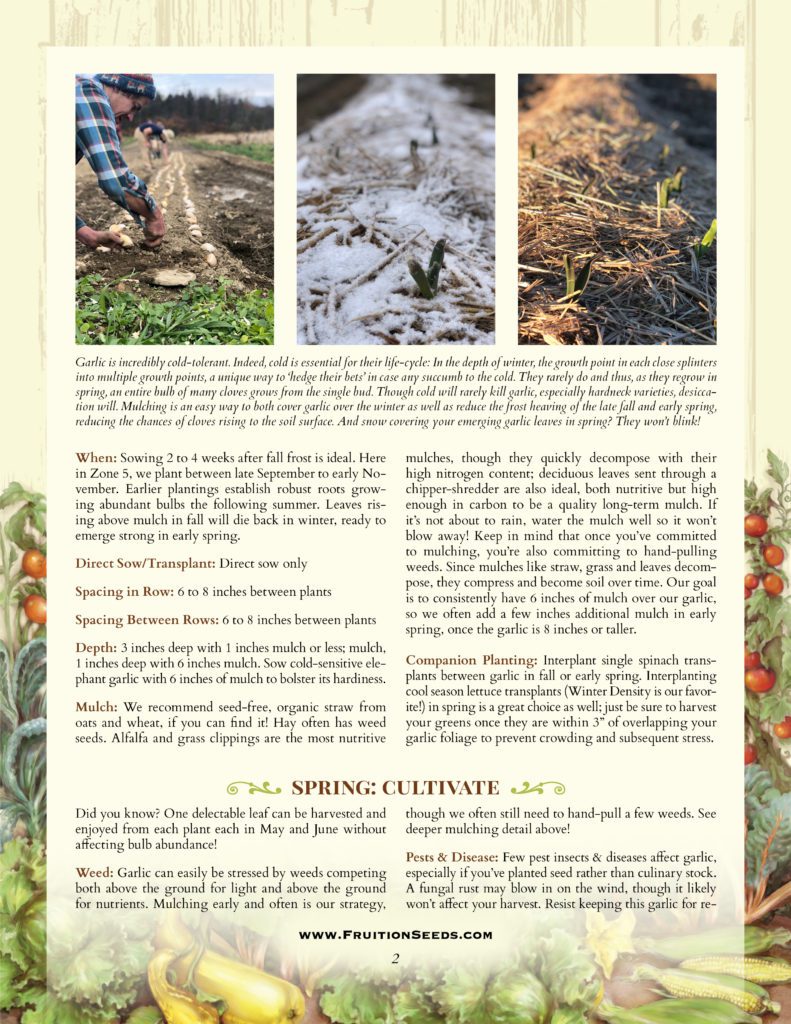
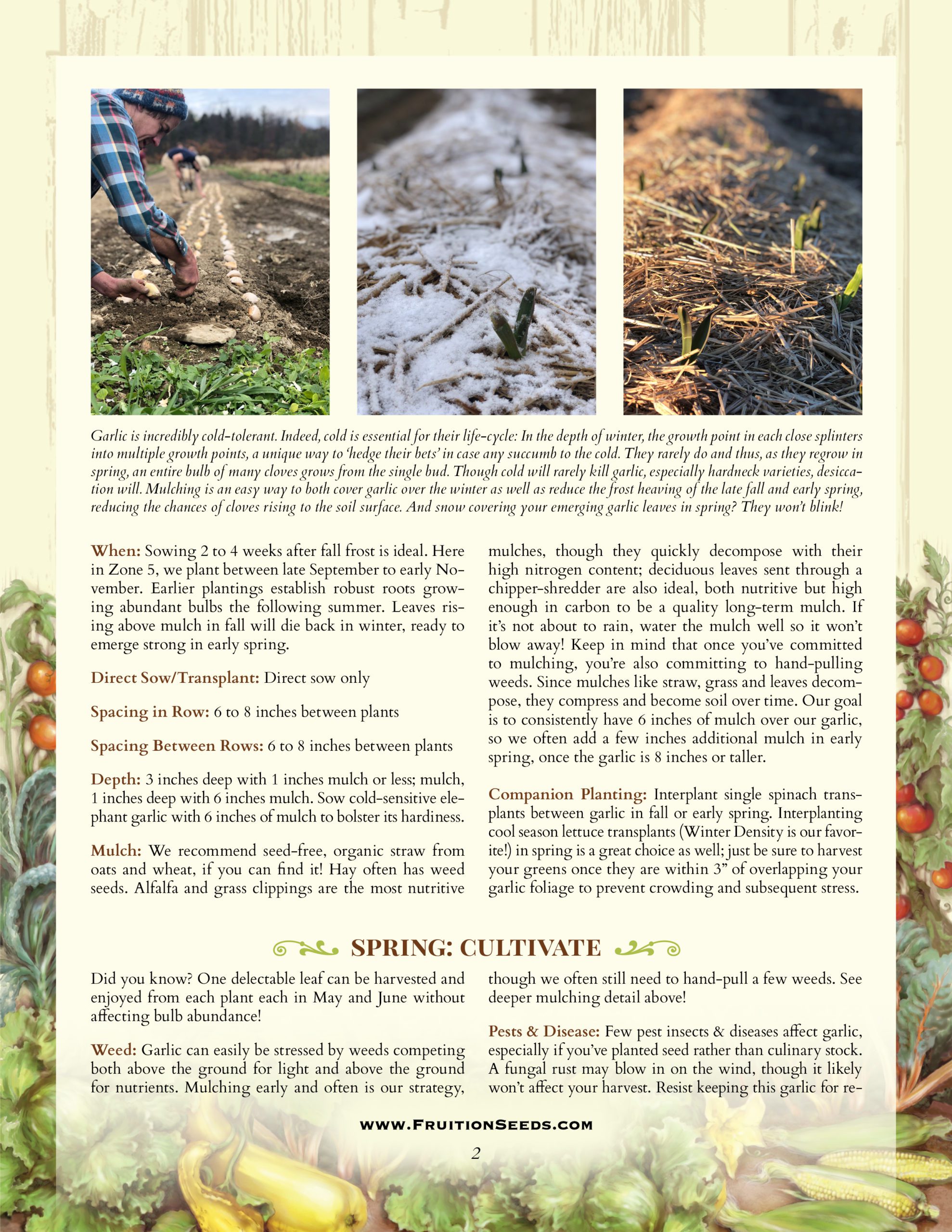
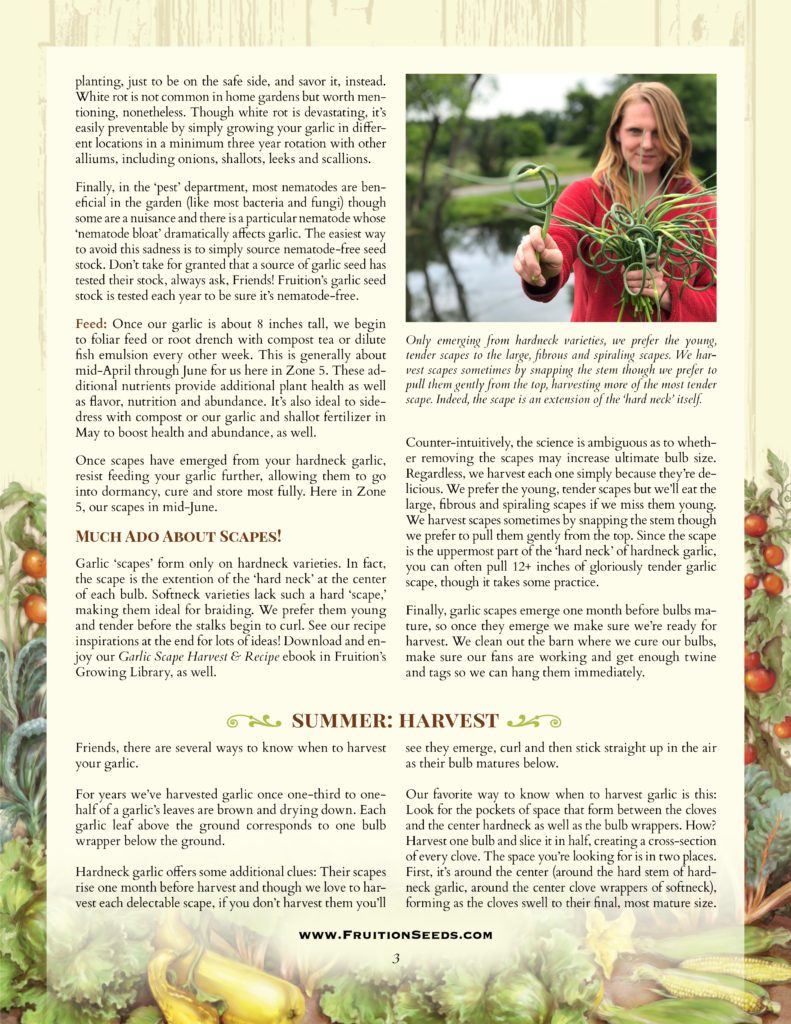
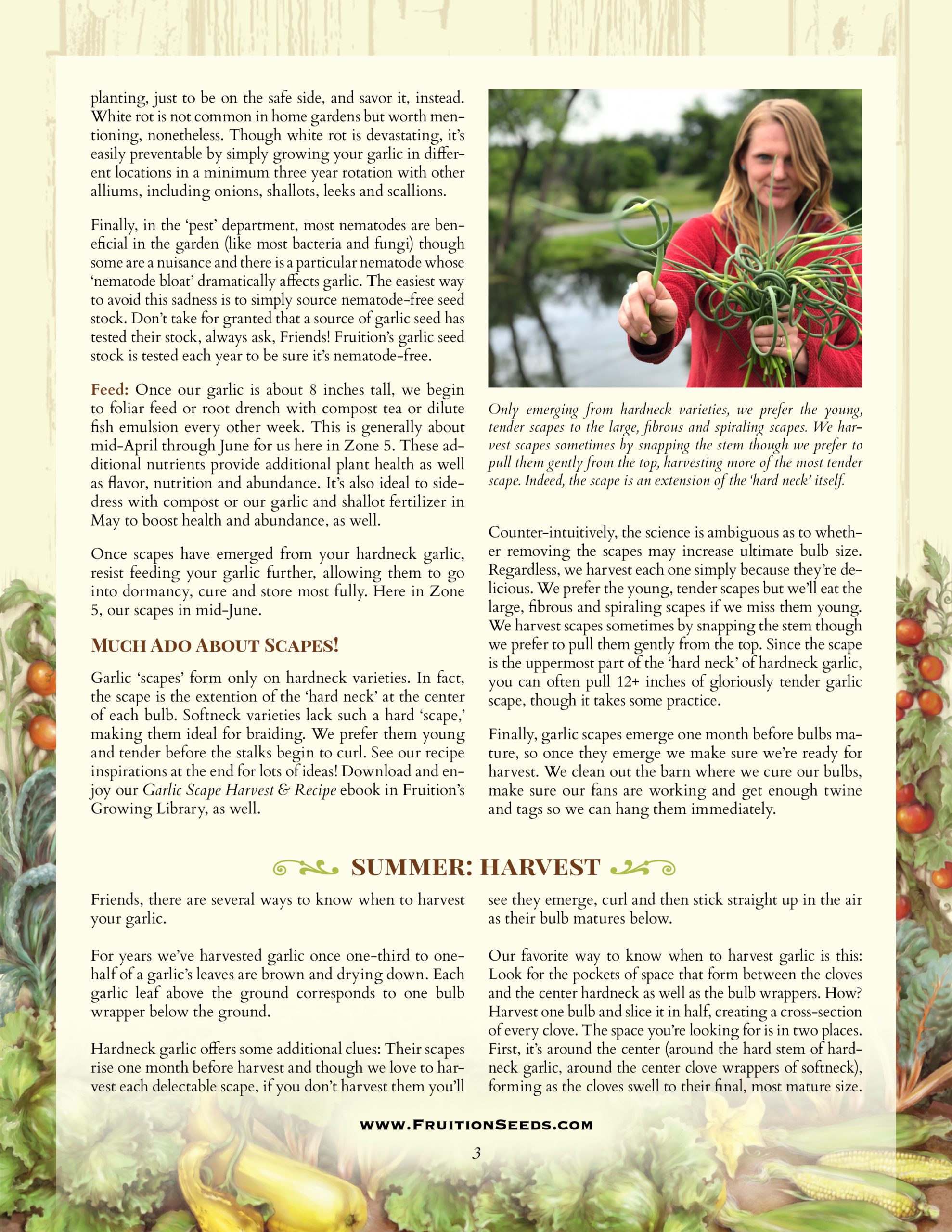
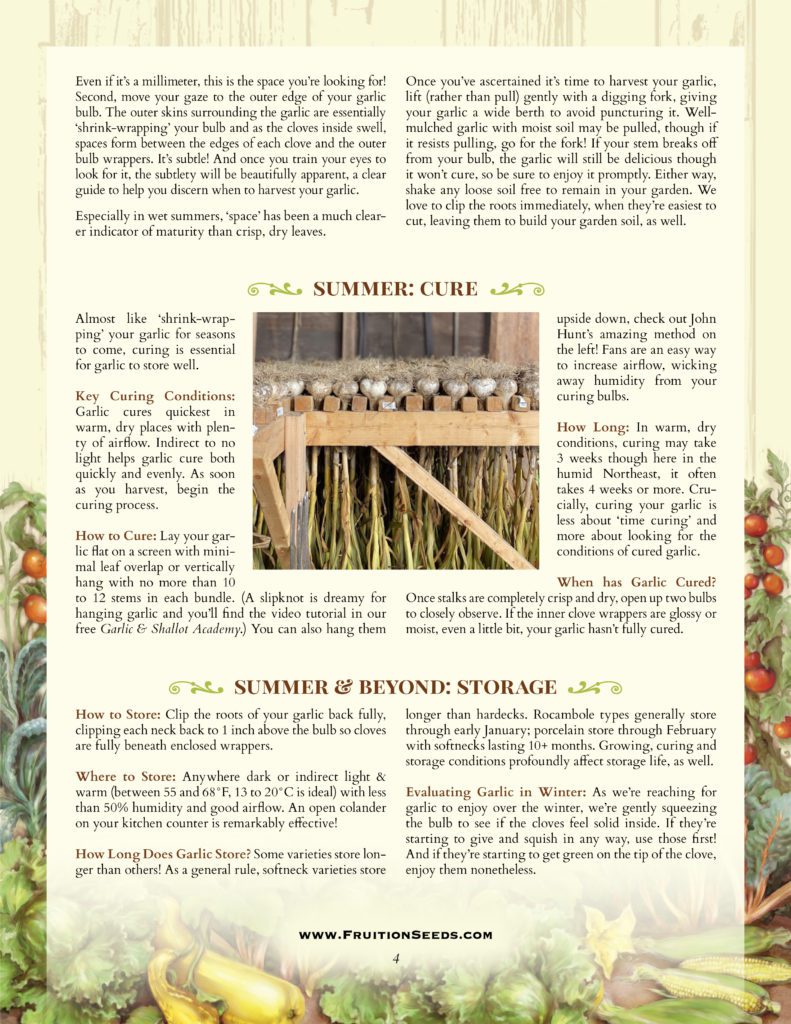
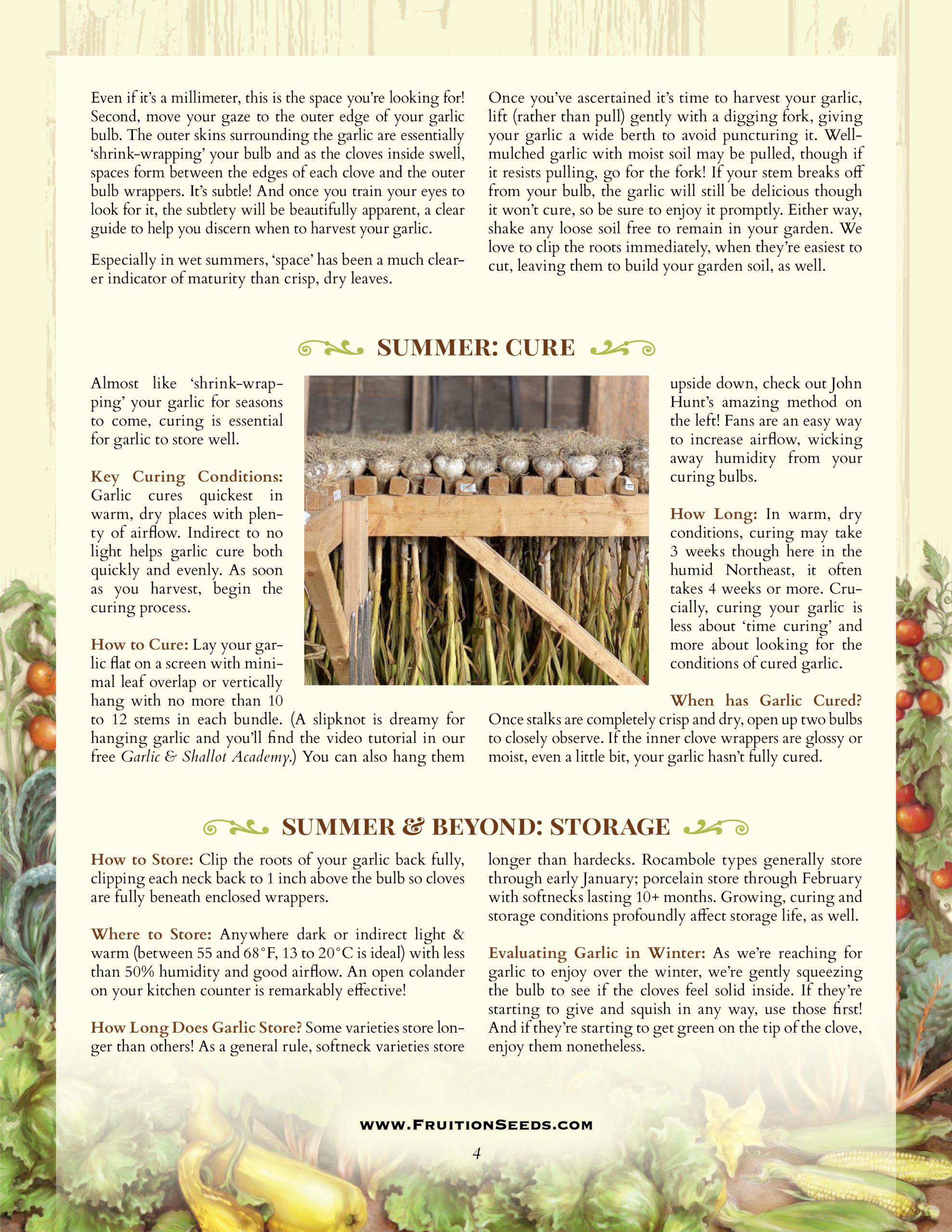
Videos
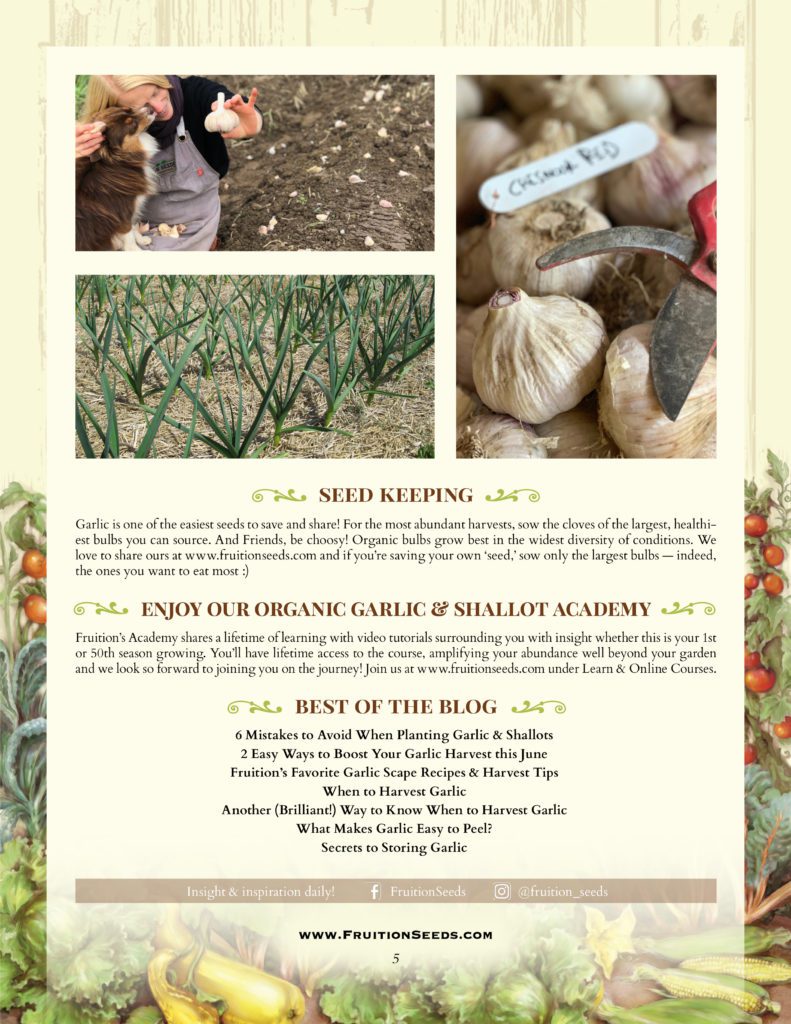
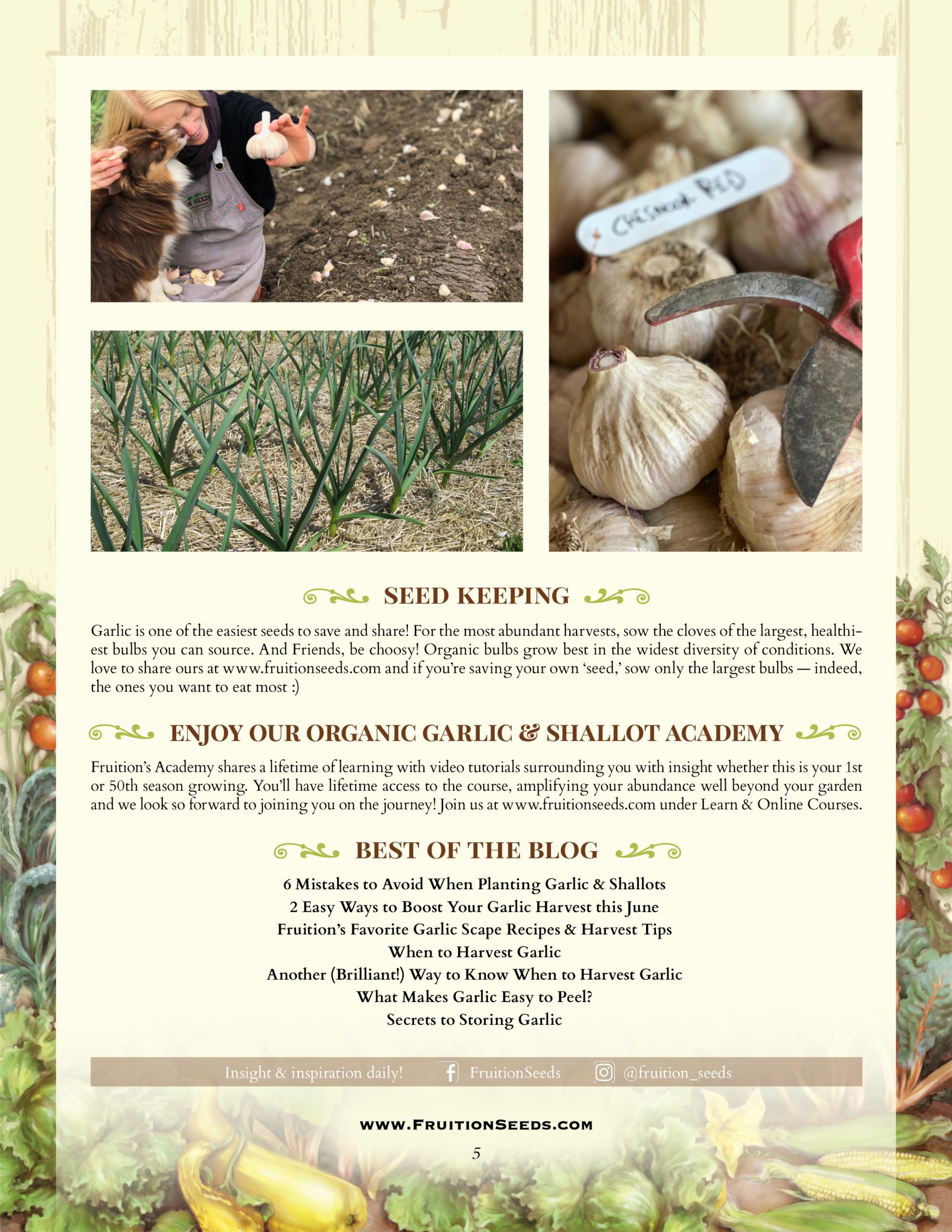




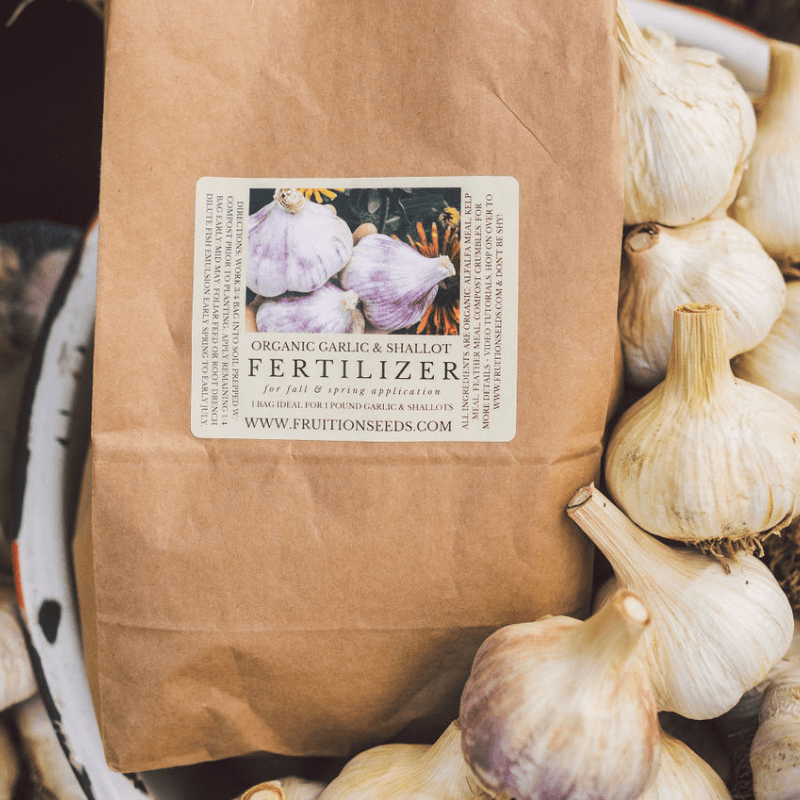
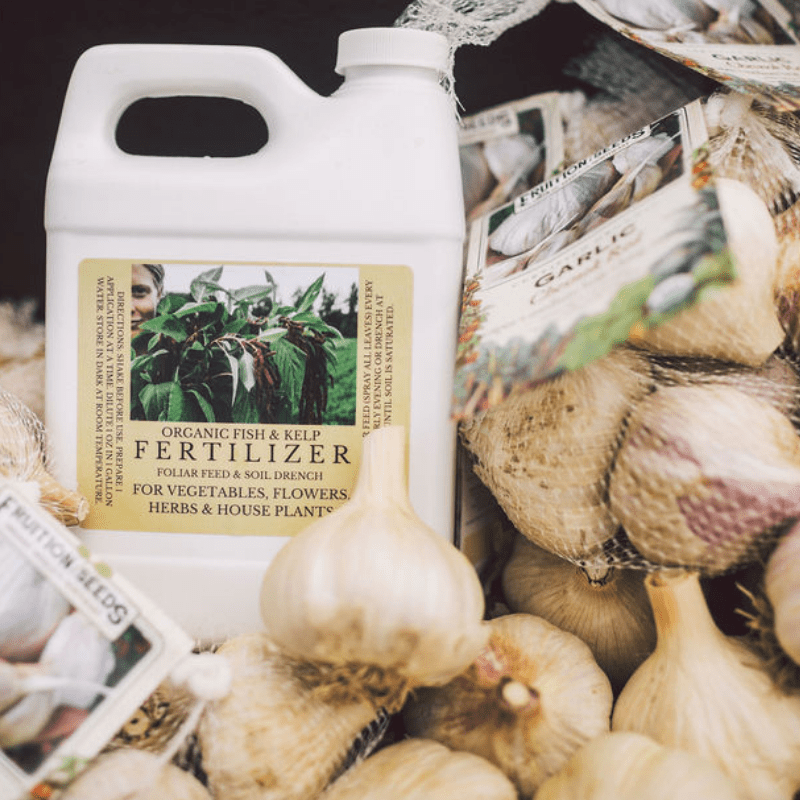
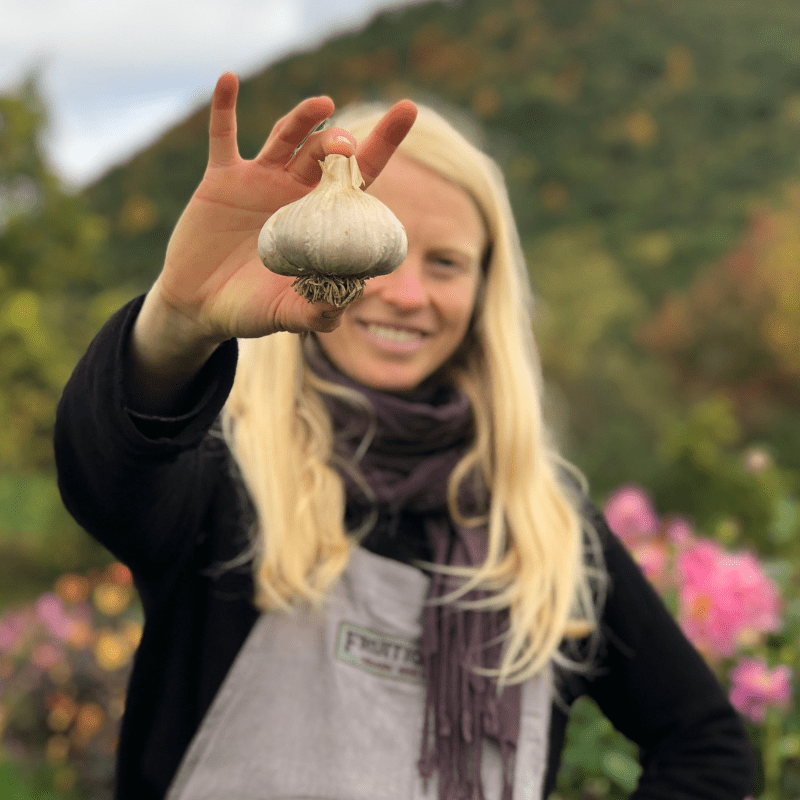
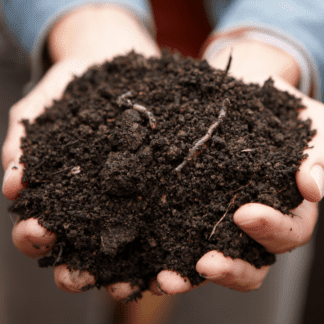
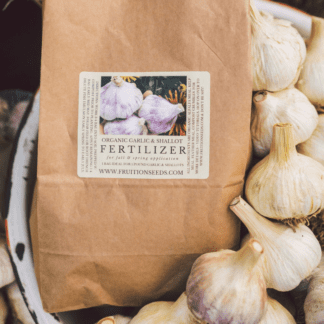
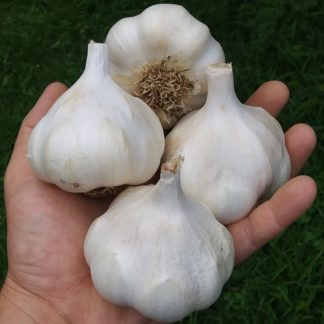
Reviews
There are no reviews yet.